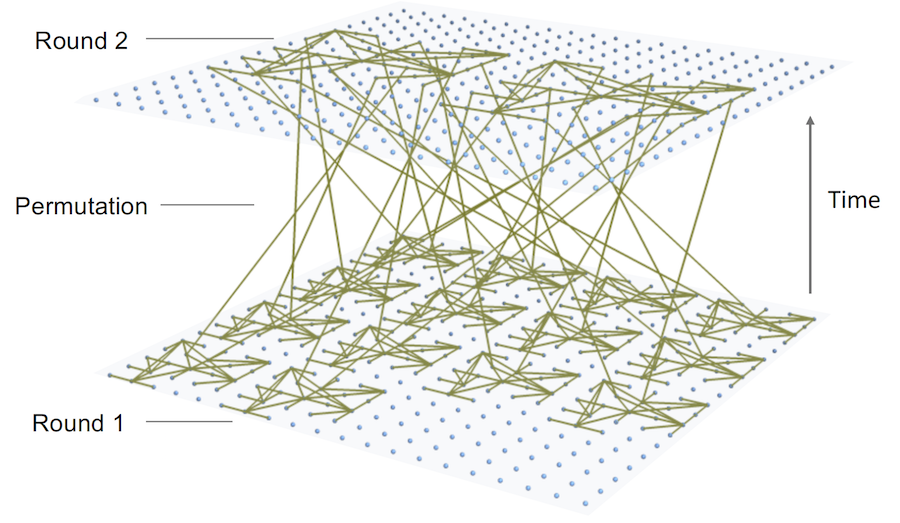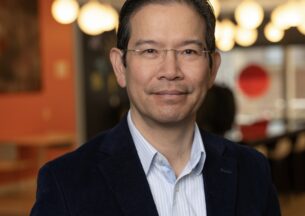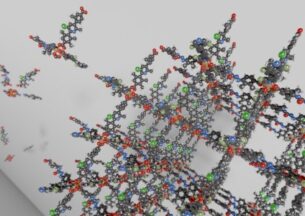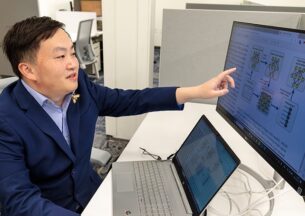Prof. Fred Chong Receives Intel Outstanding Researcher Award
Fred Chong, the Seymour Goodman Professor of Computer Science at UChicago, received the Outstanding Researcher Award from Intel for his contributions to the field of quantum computing. Chong, who leads the multi-institutional Enabling Practical-scale Quantum Computation (EPiQC) project, was one of four winners in the 2018 class announced last week by the technology company.
The award is given each year, across all scientific disciplines relevant to Intel, to researchers who “have demonstrated a high-level of innovation at enabling the understanding or solving of major technology roadblocks.” The Intel announcement specified:
“Professor Fred Chong of the University of Chicago was recognized for his outstanding research in the architecture sector with his research into “Scalable Mapping & Scheduling of Fault-Tolerant Quantum Programs.” Chong’s research demonstrated excellence in developing scalable approaches to mapping and scheduling quantum computations on two-dimensional device topologies.”
With Intel’s support, Chong and his students invented a range of software techniques to more efficiently execute quantum programs on a coming crop of quantum hardware. For example, they developed methods that take advantage of the hierarchical structure of important quantum circuits that are critical to the future of reliable quantum computation (see short video synopsis).

“Our collaboration with Intel has been very productive, giving our students experience with practical problems in quantum computing through collaborations, internships, and even permanent employment after graduation,” said Chong, upon receiving the award.
“I especially want to thank Intel for their generous support of our work before it was selected by the National Science Foundation as an Expedition in Computing. Their early support helped us grow into the $10M NSF EPiQC project that we believe will greatly accelerate the development of practical quantum computing through the cooperative design of quantum software and hardware. I also want to thank my EPiQC collaborators, who should really share in this award: Ken Brown, Ike Chuang, Diana Franklin, Danielle Harlow, Aram Harrow, Margaret Martonosi, John Reppy, David Schuster, and Peter Shor,” Chong elaborated.
Intel is also part of an industry consortium that shares ideas and challenges with EPiQC researchers. At the Federated Research Computing Conference in June, EPiQC will host an industry-focused tutorial called “Quantum Computing Industry Perspectives: The State of the Art in Quantum Machines and Software.”
The full announcement is available on LinkedIn.













